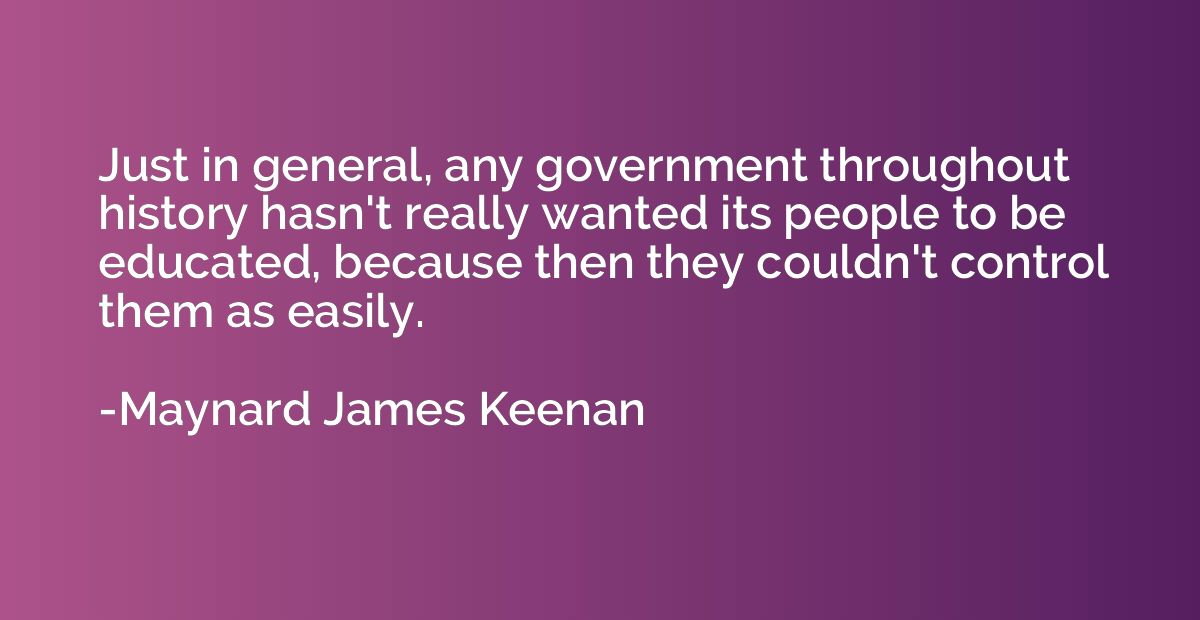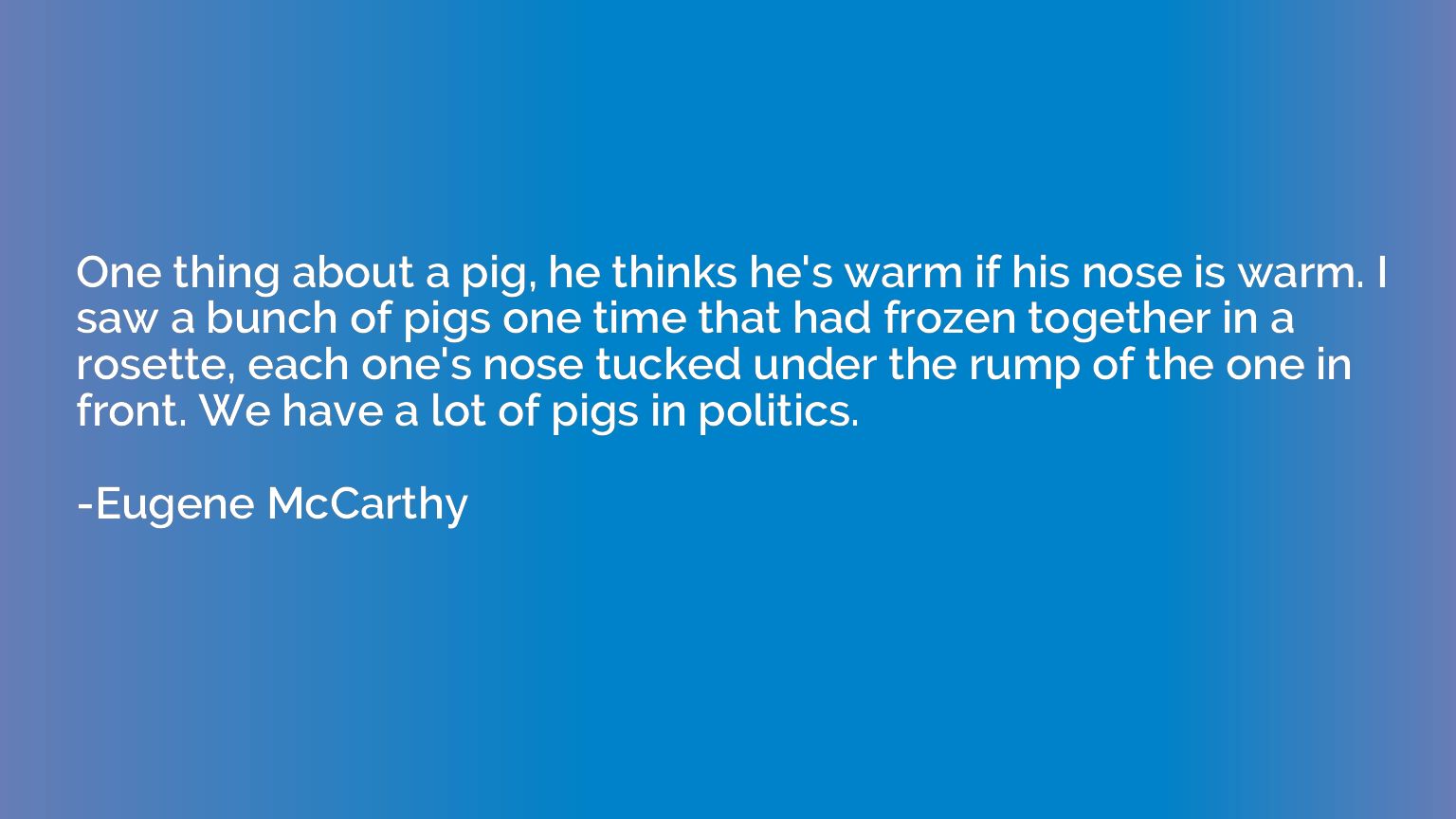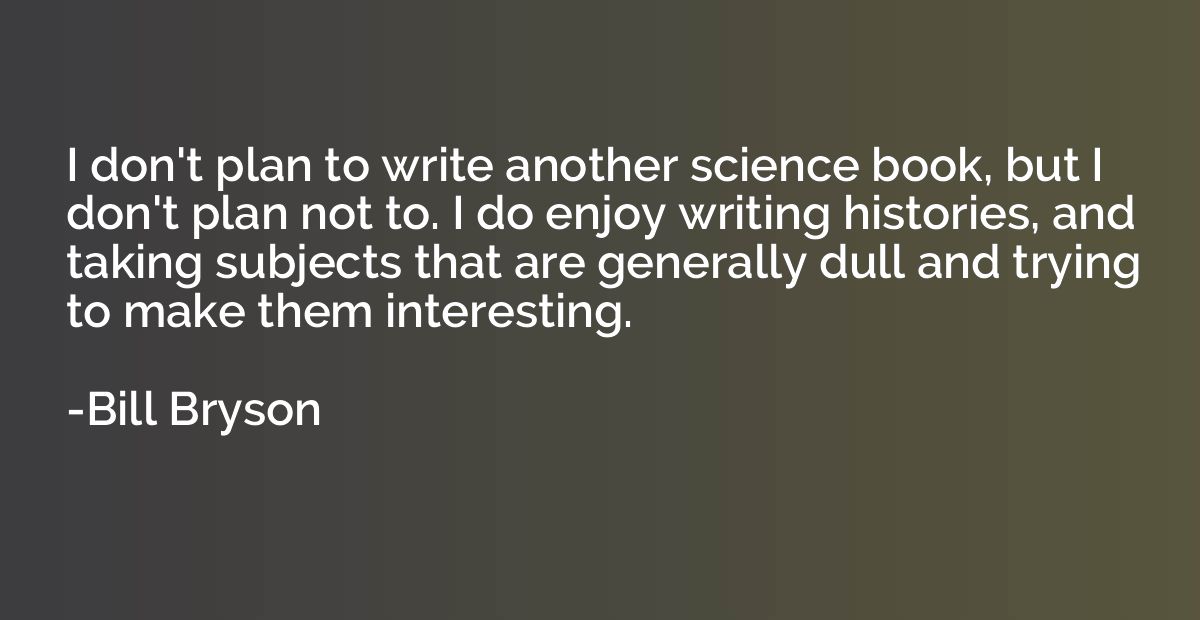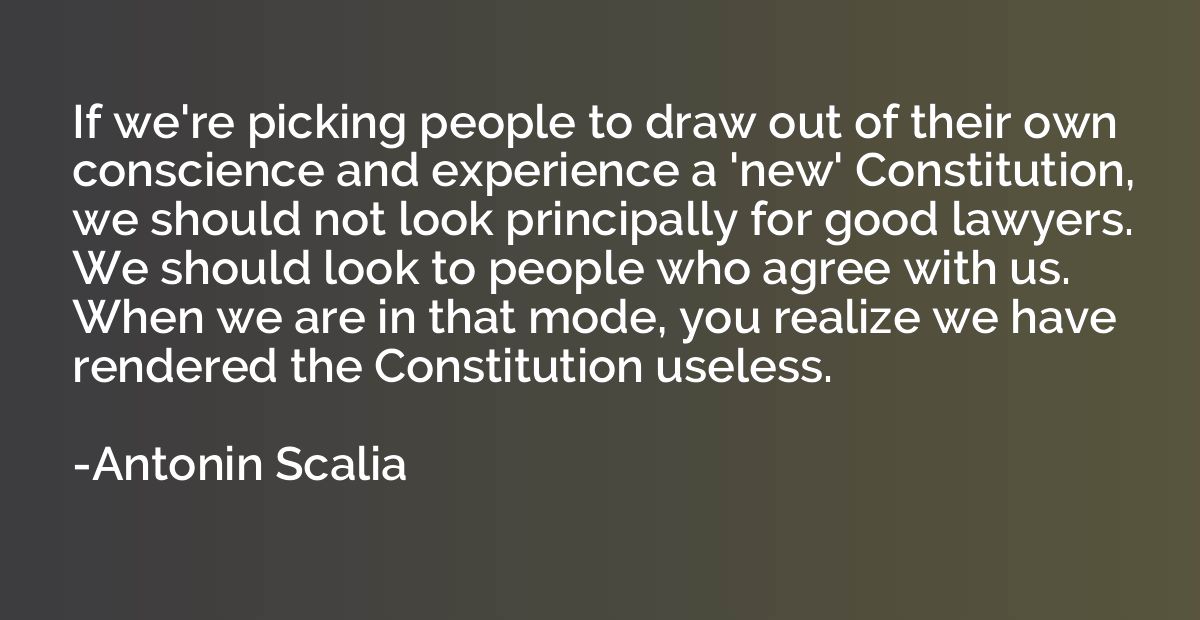Quote by Maynard James Keenan
Just in general, any government throughout history hasn't really wanted its people to be educated, because then they couldn't control them as easily.

Summary
This quote is suggesting that governments have historically discouraged education among their people as it could potentially give them more power and independence. By limiting education, governments can control their citizens more easily, as an educated population is more likely to question authority and challenge the status quo. The quote implies that education is seen as a threat to the control and influence governments exert over their people.














